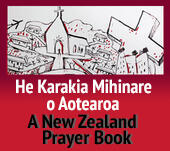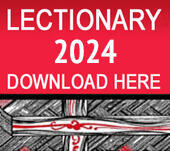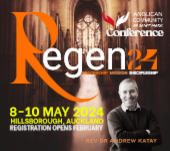Hard questions that are central to our faith and community
“You are the kind fire who does not cease to burn, consuming us with flames of love and peace, driving us out like sparks to set the world on fire” – Song to the Holy Spirit by James K. Baxter
The Anglican Church in these islands has come out strongly against domestic violence and child abuse. It has also expressed disquiet about aspects of the current Immigration Bill. These are encouraging signs of our commitment to social justice. But they, like other such initiatives, often lack a coherent theological justification, beyond those of secular advocates.
The good news of the New Testament centres on one major theme: the peace and love of God. In the life, teaching, death and resurrection of Jesus – in the presentation of what God is like and in the nature of the Kingdom of God – this message and witness is clear, pervasive and unequivocal.
It is a direct call to us to be peacemakers – to resist violence actively but not violently, to not retaliate, to work for reconciliation, to overcome evil with good, to love enemies, to love neighbours (even when different) and foreigners, to accept and absorb hostility, and to work for justice and healing imaginatively, without force.
Peacemaking is central to the portrayal of Jesus as the suffering servant, and to the call to imitative discipleship. It explains the Cross as the inevitable reaction of the powers of this world to Jesus’ life and teaching, and the resurrection as the triumph of love and peace over the forces of violence. And it reveals the essential nature of God.
Yet, if you were to ask anyone, even many Christians, for the central message of Christianity, I doubt this would be the answer you would get.
Why, then, has the church in general been so anxious to explain away this central message as impossible, irresponsible, incredible, unbiblical, mistaken?
Much of this dismissal and distortion is now history, but some is still accepted – or not challenged – in our liturgy and teaching. We may not now endorse apartheid or genocide, but our teaching on war and peace and violence and resistance is still unclear at best. We may not advocate the killing of those who are different – Jews, Muslims, gays – but we are still unreliable about the place of women, children, gays and lesbians, those with disabilities, refugees, those of other faiths.
We may have misgivings about the death penalty, but our legal “justice” still owes more to punishment than mercy. We may have abandoned mission by the sword, but we often are unclear about the message we are proclaiming. And much of this can be traced to unacknowledged understandings of violence in doctrinal thinking and teaching: about atonement, repentance, sin and, ultimately, the nature of God as revealed in the Jesus event.
It’s easy to explain much of this as the Gospel filtered through the cultural, imperial, juridicial lenses of the times, especially in the long years of Christendom. Christian peace witness often looks enlightened by standards of the time. But on the whole the church’s response to its primary calling as a peace community, a sign of the Kingdom of God, has been “massively faithless”1.
The church in these islands now has a chance to move forward from our earlier connections with the “establishment,” be they cultural, colonial, imperial, patriarchal or ecclesial.
So, do we really conceive of God as violent, vengeful, retributive, defending “his” honour, when the best of humankind can be seen to react differently? Do we think that God would demand and arrange the death of his son? That such violence, or any violence for that matter, is redemptive? That wars are ever “just,” even as a “last resort”? That there is no such thing as structural violence – and that sin and salvation are purely personal matters?
Do we still imagine that the unity of the church can be bought by ignoring the violence perpetrated against groups of its members (the question currently obsessing the Anglican Communion)? How do we really envisage the relationship between peace, justice, love and mercy? Between Christians and the State? And how should evil be resisted?
Of course, these questions are all framed provocatively and advance a particular theology – intentionally so. But these questions are central to our faith and community and need to be laid bare and debated openly, at parish level as well as in theological circles.
So, let’s consider some issues that connect to the promotion of peace and the negation of violence. There are global questions about a “responsibility to protect,” around the use of nuclear weapons and cluster bombs, about the negative effects of globalization, global inequities and corporate responsibilities.
There are also questions of human equality in race relations or immigration policy, of human rights in the “war on terror” and in our treatment of prisoners. What should we do about abuse of women and children in particular? And what is our rationale for arming the police, other than to say that others do it?
Peace-builders are generally accused of two things: being unrealistic, and being “passive” – that is, not reacting, or taking an easy option. The charge of taking no risks (unfortunately associated with the word “pacifist”) can be refuted by a look at practitioners of non-violence and the price they have paid, from Jesus himself to Francis of Assisi, Gandhi, conscientious objectors, Martin Luther King and Desmond Tutu.
The church is called always to two things that hopefully are connected: a grounding belief, and action in the world. If we believe in God’s peace, which encompasses both love and justice, we must train for it and work for it, not just as individual Christians, parishes or fringe “peace groups,” but as a church community acting and speaking together, and offering practical solutions.
To take the gospel of peacemaking seriously we need to practise, which means being counter-cultural and counter-intuitive. This is not how human beings are wired to behave, but it’s what the Jesus event showed us. It is too late when conflict is close and the crisis of decision comes, when the press statement is due, the envoy must be sent or a sacrificial response is required, to work out a theory and a strategy.
Training in conflict resolution and new ways of approaching old dilemmas are needed. For example, the Dublin Action Agenda on the Prevention of Violent Conflict of 2004 concludes:
“Historically, the emphasis has been on strengthening the institutional capacity for military response. The emphasis now needs to be on strengthening the institutional capacity for non-violent civilian response … Efforts to generate a sustainable culture of peace must be rooted deeply in the population… Education for peace is a fundamental element of this transformation.”
What the church has to offer in addition is a stunning reason for acting in this way.
Margaret Bedggood is a member of the Third Order of the Society of St Francis, chair of the NZ branch of the Anglican Pacifist Fellowship and a trustee of the Aotearoa New Zealand Centre for Peace and Conflict Studies Trust. The views expressed here, however, are her own and are not to be attributed to any of those organizations.
REFERENCES:
1. Richard B. Hays, “The Moral Vision of the New Testament: a Contemporary Introduction to New Testament Ethics”, HarperCollins, 1996
Willard M. Swartley, “Covenant of Peace. The Missing Peace in New Testament Theology and Ethics”, Wm.B.Eerdmans Publishing Co., 2006
Dublin Action Agenda on the Prevention of Armed Conflict, regional meeting (April 2004) of the Global Partnership for the Prevention of Armed Conflict.

















Comments
Log in or create a user account to comment.